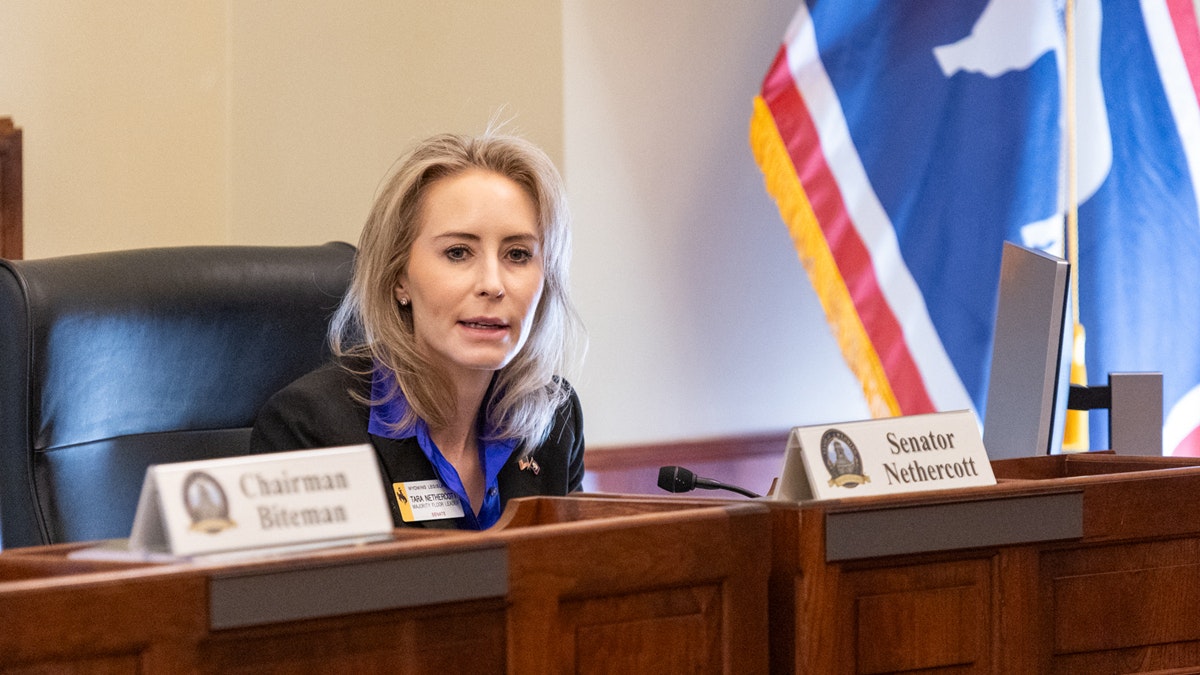A bill that would have criminalized the sale and purchase of “manual” sex acts in Wyoming died in the House Speaker’s drawer last month.
Senate File 76 would have criminalized the purchase or sale of sexual contact as a misdemeanor punishable by up to six months in jail and $750 in fines.
Wyoming’s prostitution laws now only outlaw the sale and purchase of “sexual intrusion.”
The bill’s sponsor, Sen. Affie Ellis, R-Cheyenne, lamented the bill’s death in a Wednesday interview with Cowboy State Daily, saying Wyoming law enforcement needs the law change to open sex-trafficking investigations into murky massage parlor-style operations.
“I can’t imagine why a bill that passed with really strong support in the Senate and had a really diverse list of co-sponsors, why the Speaker refused to refer it to a committee,” said Ellis. “I really don’t understand it.”
Not The Bill’s Fault
House Speaker Albert Sommers, R-Pinedale, however, said he didn’t hold the bill back because of any qualms about its contents. He held it back because the House Judiciary Committee that would have heard it was already busy with other bills residents and lawmakers had been clamoring for — such as a bill (now law) banning sex-change treatments for kids.
Wyomingites and lawmakers did not clamor to pass the sexual contact ban as they did for several other high-profile bills, Sommers added.
“Judiciary Committee was just loaded up and they had some hard bills,” he said. “The vast majority of those Senate bills came overnight toward the end on (the inter-chamber crossover deadline).”
And a lot of the bills circulating involve criminal law and rights, he said, adding that there are frequent pushes to “ban” things in recent years, which fills the Judiciary Committee’s schedule.
This year’s Legislative session was just three weeks long and centered around the Legislature’s obligation to pass the state’s biennial budget.
Ticket Into The Massage Parlor
Wyoming’s laws against sex trafficking already allow the prosecution of suspects who coerce others to perform any “commercial sexual service,” a term that may already include hand sex acts.
House Speaker Pro Tem Clark Stith, R-Rock Springs, a perennial proponent of tougher law against prostitution, conceded that traffickers are already culpable under existing law.
But the trick is opening an investigation in the first place, he said.
Changing the law “would provide another tool to assist in commencing investigations for human trafficking,” said Stith. “Human trafficking cases can be difficult because gathering the evidence is often challenging for law enforcement.”
Ellis voiced that point as well, as did Cara Chambers, director of the Wyoming Division of Victim Services.
“If we had an illegal massage parlor that we could make a ‘hand job’ arrest in and allow law enforcement to identify potential victims of human trafficking, law enforcement then could make the case against the parlor owners for human trafficking,” wrote Chambers in a Wednesday email to Cowboy State Daily.
Both Chambers and Ellis pointed to a state statute exempting victims of sex trafficking from being prosecuted as prostitutes. So, while law enforcers could use a ban on hand sex to investigate an illicit massage parlor, parties in that case found to be victims wouldn’t be culpable under that ban.
“This change would actually allow us to identify victims, not punish them,” Chambers wrote.
She said the federal Department of Homeland Security said it needs the "predicate state offense" to investigate and ultimately prosecute human trafficking on their level.
Priorities
Sith agreed with Sommers that delegates and constituents didn’t push for this bill as much as they did for others. And Stith noted that he did not approach Sommers about getting the ban out of the drawer, though he co-sponsored it this year and has sponsored it in years past.
“I thought that, during the budget session, we had the budget to deal with first and foremost, and then my parental rights bill — I put that higher priority,” he said.
Stith’s parental rights bill, which specified that schools are to communicate with parents in a way that honors parents’ rights to raise their own children, passed into law last month.
The Lone Nay
Sen. Chris Rothfuss, D-Laramie, was the only Senate delegate who voted against SF 76 when it passed the Senate in late February.
At the time he called it a new way to prosecute prostitutes, fine them and put them in jail. He reiterated that thought in a Wednesday interview.
“We need the entire focus to be on stopping human trafficking and protecting women that are in circumstances they don’t want to be in, where they need protection,” he said. “The idea of just providing more criminality to prostitutes just doesn’t seem to get at that.”
Rothfuss disputed the strategy of strengthening one law to lead to investigations on another.
“When you criminalize the behavior that is not the focus, you often end up drawing away resources and distracting from the focus, and I think that’s what we’d be doing here,” he said.
Rothfuss also noted a recent push to add more criminal statutes and bans.
“The idea that we need to criminalize everything is really not accomplishing the public interest,” he said. “The public interest here is (curbing) sex trafficking.”
Clair McFarland can be reached at clair@cowboystatedaily.com.





